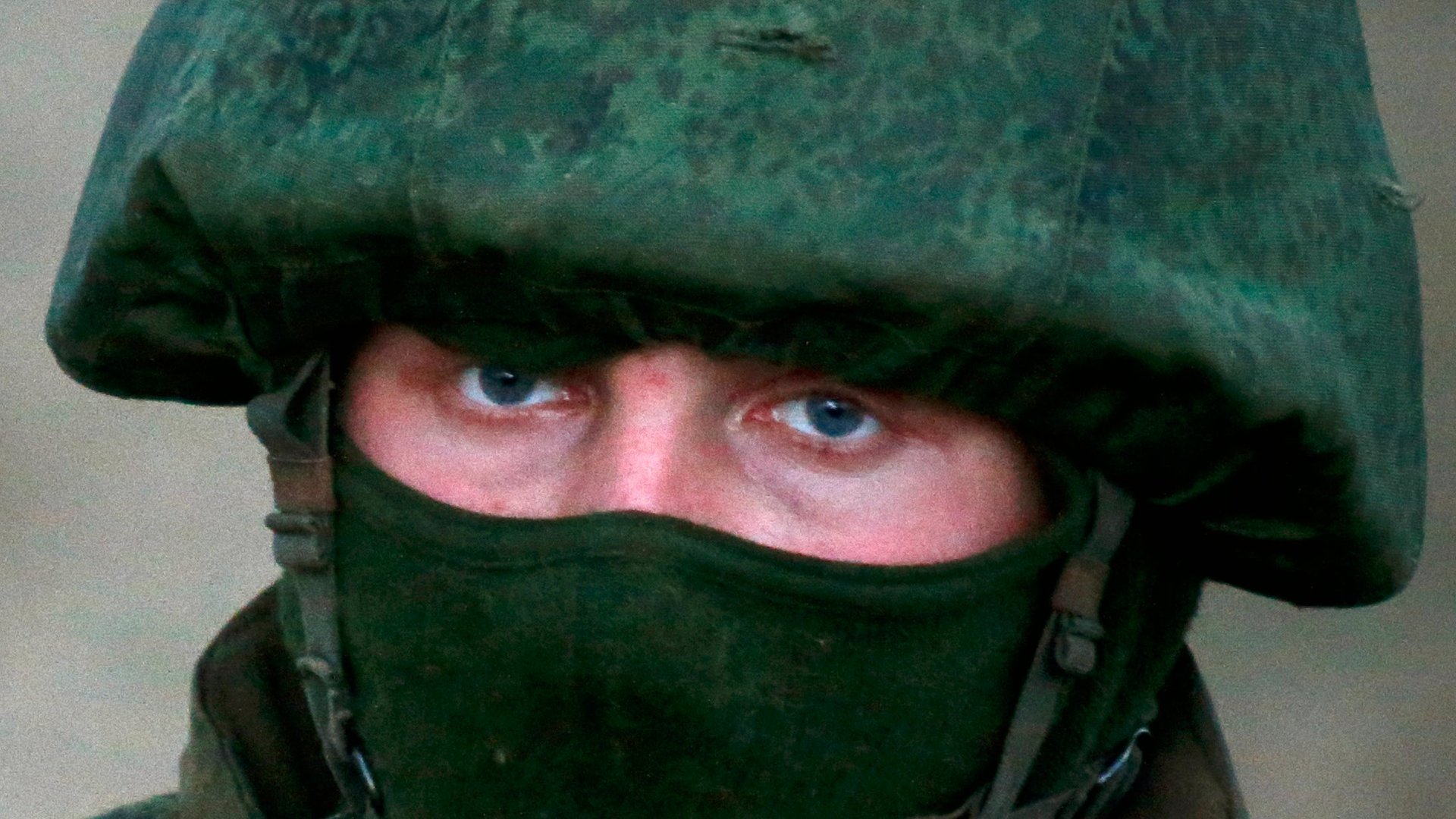How Biden defeated Putin’s Ukraine disinformation campaign
When Russia seized Crimea in 2014, it was an act of gray war. Russian soldiers wearing uniforms without insignia—”little green men”—seized strategic points there and in eastern Ukraine. It wasn’t clear if these were separatists, foreigners, or both, confusion that Vladimir Putin promoted until the facts on the ground were in his favor.


When Russia seized Crimea in 2014, it was an act of gray war. Russian soldiers wearing uniforms without insignia—”little green men”—seized strategic points there and in eastern Ukraine. It wasn’t clear if these were separatists, foreigners, or both, confusion that Vladimir Putin promoted until the facts on the ground were in his favor.
Ahead of this Russian invasion of Ukraine, the US government knew that clarity would be critical to rallying global public opinion against an invasion. It attempted an unusual diplomatic tactic: Sharing intelligence in near real-time to reveal Russia’s military build-up.
As Vladimir Putin ordered soldiers and tanks to surround Ukraine, the US publicly announced its deployments, demonstrating that Russia wasn’t reacting to a provocation but preparing to start a war. And when Putin suggested he was pulling his forces back, American officials were able to demonstrate he was lying.
“The US has done a very good job of frustrating Russia’s plans to create a pretext for war,” Jeffrey Lewis, an arms control expert at the Middlebury Institute for International Affairs, says. “The narrative of this crisis has really been driven by the fact that the US has lots of evidence to back up its claims, while the Russians have often been caught saying things that are manifestly untrue.”
Russia’s aggression has been clear to see
US intelligence agencies are some of the best in the world at intercepting communications and using satellites to keep tabs on adversaries. It is harder to estimate the extent of its human intelligence sources, but the US undoubtedly seeks access to Putin’s regime and encourages defectors. While this information is typically shared with trusted allies, this time that conversation is taking place in the open.
“The pace at which they are releasing intel information is new,” says Emily Harding, a former CIA analyst now at the Center for Strategic and International Studies. The cost is potentially losing access to sources, she says, “[but] if you’re not going to declassify intelligence that might prevent a war, when would you declassify intelligence?”
As Putin and his allies have claimed, falsely, that Ukraine is committing genocide, controlled by Nazis, developing nuclear weapons, or launching attacks on pro-Russian civilians, the US has worked to “prebunk” these narratives, Harding says, arguing that “the final accounting is going to show that the strategy made Russia’s life much harder.”
“Our theory has been that putting true information into the public domain, which was bearing out in real time because everybody can see what they’re actually doing, was the best way to prevent the Russians and what they always do, which is to try to control the narrative with disinformation,” an anonymous US official told the New York Times.
What the US and its allies gained from calling out Putin
This was not an attempt to deter Russia from invading, but rather to prepare to fight back.
Rob Lee, who studies the Russian military at King’s College in London, wrote a prescient analysis of Putin’s thinking last month. He noted the US had few options to deter Russia, but that “better deterrence options would not take effect unless Russia conducted a significant escalation, making Moscow the initiator. Such an approach would worsen Russia’s security situation, potentially negating whatever security benefits it hoped to achieve by escalating in Ukraine.”
The US has used its intelligence as a tool for coalition building. The fruits of that effort can be seen in the unity of the NATO alliance in the face of Russia’s activities, exemplified by Germany’s decision to cancel the Nord Stream 2 pipeline. But they can also be seen in global outrage against the war, like the speech delivered by Kenya’s UN ambassador that explicitly framed Putin’s invasion as an act of imperialism.
“Sanctions depend on the willingness of countries to enforce them, so making it clear that Russia is the aggressor is a major part of any sanctions effort,” Lewis says.
Now, US officials will have to follow through by pushing through a sanctions package with more teeth, and being willing to suffer the economic consequences of higher gas prices and other economic dislocations. Russia’s economy does not rival that of the West, but it remains an important producer of key commodities.
The other way these intel dumps help the US is undermining the Russian government, Harding points out. The spectacle of Putin dressing down his cabinet members earlier this week underscored the fragility of the regime.
“You can bet the Russians will start looking at each other to figure out where there might be a leak,” she points out. “Having your adversary second-guessing who it can trust is a benefit to releasing intelligence.”